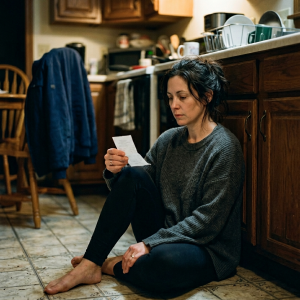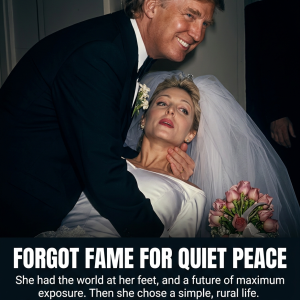In a story that has stirred conversations around respect, gratitude, and family loyalty, an 83-year-old grandmother who selflessly paid for her grandson’s wedding found herself shockingly excluded from the very celebration she helped make possible.
A Lifetime of Devotion
Virginia, a widow and retired teacher, had always been deeply devoted to her family. After losing her husband, she found solace in helping raise her grandson, Ryan, following the untimely passing of his parents. Through the years, Virginia supported Ryan emotionally and financially, attending every milestone from his first school recital to his college graduation.
So when Ryan announced his engagement to his longtime girlfriend Claire, Virginia, overwhelmed with joy, did not hesitate to offer her full financial support for the wedding. She happily covered expenses including the venue, the flowers, catering, and even the live band — totaling tens of thousands of dollars.
“She told everyone that helping Ryan start his married life was the least she could do,” said a family friend.
A Shocking Phone Call
Weeks before the wedding, however, Virginia received a call that would shatter her excitement. It was Ryan. His voice, once filled with gratitude, now sounded hesitant and cold. He explained that Claire was concerned about Virginia’s presence at the wedding, citing her mild dementia and occasional use of a wheelchair.
“They were worried,” Ryan said, “about her causing a ‘scene’ or appearing in the official wedding photos.”
In what Virginia described as a “carefully rehearsed” conversation, Ryan informed her it would be best if she stayed home. He reassured her it was “for her comfort,” though the underlying message was clear: she was no longer welcome.
A Bold and Painful Decision
The betrayal cut deeply. Virginia spent days in silent grief before making a decision that would reclaim her dignity. Quietly, she contacted the wedding planner, whom she had paid directly. Without informing Ryan or Claire, she canceled all the vendor contracts she had funded — the catering, the floral arrangements, the music, and other luxury services.
“The money was mine,” Virginia later said. “If I wasn’t good enough to attend, my money wasn’t good enough to celebrate.”
Despite her heartbreak, she made one final move: she attended the wedding ceremony briefly, arriving in her wheelchair. Witnesses described her entrance as “silent but powerful,” as confused guests looked around the sparsely decorated hall and murmured about the missing food and flowers.
A Moment of Reckoning
Ryan and Claire were said to be “stunned” when they saw Virginia sitting quietly at the back of the ceremony. Ryan approached her, allegedly whispering accusations of “ruining” their special day. Virginia, calm and composed, simply replied:
“I didn’t ruin your wedding, Ryan. You ruined our relationship.”
Witnesses recall the bride bursting into tears and several guests leaving early as the celebration crumbled into disarray.
A Larger Conversation About Age and Respect
Virginia’s experience has since gone viral online, sparking widespread debates about ageism, familial loyalty, and the often-forgotten sacrifices made by elders. Many have hailed her as a symbol of quiet resistance against being discarded after a lifetime of giving.
“She taught them a lesson no fancy flower arrangement ever could,” one online commenter wrote.
Moving Forward
Though the pain remains, Virginia has found a new sense of peace. Surrounded by friends, neighbors, and distant family members who rallied around her, she has chosen not to dwell in bitterness. Instead, she is focusing her time on community volunteer work, mentoring young students — passing on her strength and wisdom where it will be appreciated.
As for Ryan and Claire, sources close to the family reveal their marriage began under a cloud of tension, with many relationships strained by the fallout from their treatment of Virginia.





